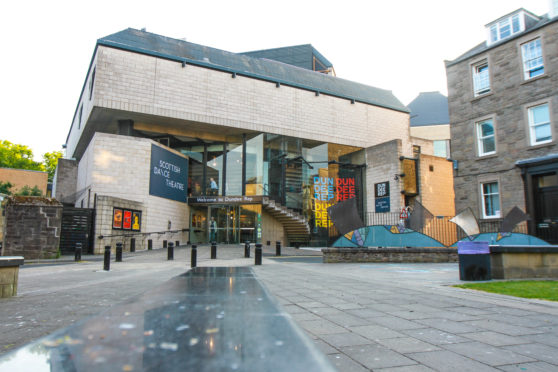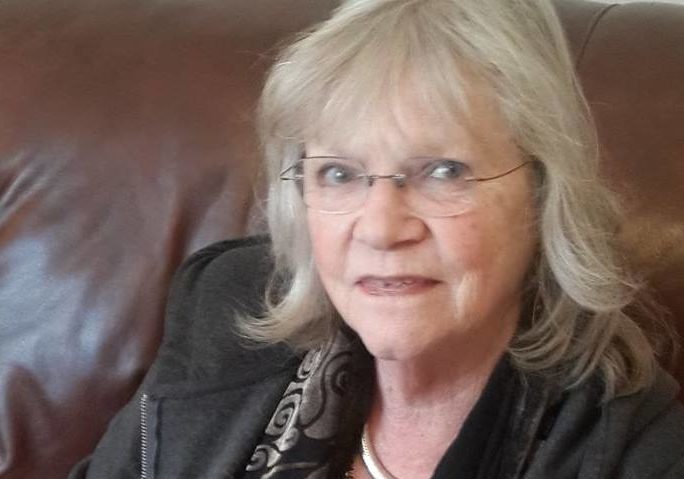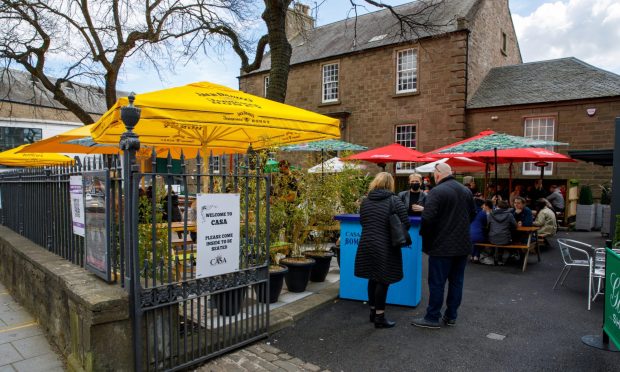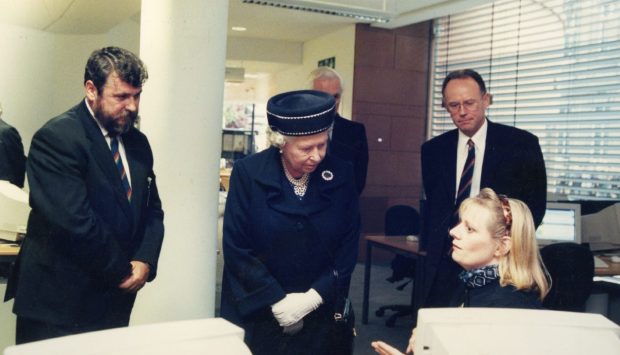A row has broken out over new signs at Dundee Rep Theatre encouraging visitors to use the toilets that best fit their gender identity.
The heated debate erupted online after an audience member posted a photograph of the sign, which prompted fears regarding privacy and calls for a boycott of the theatre.
The Rep’s management maintain the new signage promotes “equality, diversity and inclusion”, and that they are operating within the parameters of the law.
I love Dundee Rep but up I’m really disappointed that to see this. Unless they’ve created new toilets with self contained cubicles, ie floor to ceiling walls & contains washing facilities, they will benbreaching our rights to privacy.
— Martina is my Sheroe (@ScepticShrew) March 1, 2019

Diane Jones, an organiser of the Defend Women’s Rights! campaign in Newcastle, said her visit to the Rep was “marred” by seeing the signage, adding: “I was visiting Dundee and went to see All My Sons on Wednesday.
“I was in the queue for the toilets when I saw the sign and took a photo.
“I’m part of a national campaign on this issue. None of us are anti-trans, we want trans rights and also women’s rights.
“The stumbling block for us is that gender identity essentially means self-ID, so anybody can say they identify as a woman and vice versa.
“This goes against the Equality Act, which gives women protected spaces such as toilets and changing facilities.
“If people can self-ID, then men can get access to women’s spaces. In many cases, this has led to an increase in sexual assaults and issues with privacy.
“The Rep Theatre hasn’t acknowledged that they haven’t thought this through.”
A spokeswoman from the Rep explained only the toilets on the upper floor of the venue had the signage, while the facilities on the ground floor remained separated into “male” and “female.”
In an official statement, a spokesperson for the Rep added: “Dundee Rep and Scottish Dance Theatre are dedicated to a culture that places equality, diversity and inclusion (EDI) at the heart of all we do, our toilet signage reflects that.
“We aim to ensure that all visitors to Dundee Rep and Scottish Dance Theatre feel welcome.
“Following discussions with our EDI group we added ‘every body is welcome here’ signs to the male and female toilets in our upper foyer.
“We understand that some visitors may not be comfortable with these signs, and for this reason we have not added these signs to toilets in our lower foyer.
“We are confident that we are operating within the parameters of the law and that our policy ensures there are toilet facilities in public spaces that meet the needs of all our customers.
“We continue to monitor changes in legislation and adjust our policies accordingly.”
The “self-ID” debate
Over the past few years the debate around gender and “self-ID” has become increasingly polarised, with battle lines drawn between those who support reforms to the Gender Recognition Act (GRA) and those who oppose them.
Currently, to officially change their gender, a person must demonstrate that they have accessed services relating to transitioning and have lived in their chosen gender for a minimum set period of time.
One of the main changes proposed is that anyone should be able to have their gender identity formally recognised without going through this process, which has been criticised for being overly bureaucratic and outdated.
Opponents, which include, but are not limited to, “gender critical” feminists, have voiced fears that such changes would clash with the Equality Act 2010.
The Act permits service-providers to restrict certain services and facilities to biological women without being liable for discrimination.
The debate has become particularly hostile online, with those describing themselves as gender critical feminists saying they are being “silenced, barred from Twitter and no-platformed” when they voice their concerns.
Supporters of the GRA reform say that they are facing “transphobia and hatred”.











